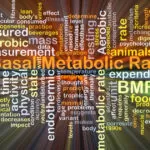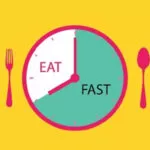Underweight individuals are those who are more than 10% below the established standards. An underweight person will have a BMI of less than 18.5, have reduced capacity for sustained heavy work, and lower productivity. Immunological defects are seen in the person.
Reasons for being Underweight –
- There are numerous causes for underweight people. Some people may be genetically prone to be small due to their birth weight. Even when they consume foods that are high in calories, some people may have a very high metabolism and find it difficult to gain weight.
- Psychological Factors – Anorexia Nervosa is seen in girls between the age of 15 & 25 years because of the desire to lose weight & not take a balanced diet.
- Underweight occurs in people who are active hence nervous & who never take rest.
- It also occurs in pathological conditions such as fever, GI disturbances, and Hyperthyroidism.
Problems caused by being underweight –
- Being underweight is primary unless all the conditions are caused by it. Underweight people who are underweight may have little physical stamina and a weakened immune system, making them more vulnerable to infection.
- An eating disorder or too intense exercise can cause severe underweight in women, which can lead to amenorrhea (lack of menstruation), infertility, or issues during pregnancy if gestational weight gain is too low.
- Anemia and hair loss can also result from malnutrition.
- Even in young adults, being underweight is known to increase the risk of osteoporosis. This is observed in athletes who have a relative energy deficit, sometimes known as the “female athlete triad”.
- Many numbers of illnesses, such as type 1 diabetes, hyperthyroidism, and TB, are linked to being underweight. It’s possible that those with liver or digestive issues can’t properly absorb nutrients. In addition to one or more vitamin deficiencies or excessive activity, which worsens nutrient deficiency, people with specific eating disorders may also be underweight for other causes.

Dietary Management –
It is advised to consume plenty of vitamins together with a diet high in calories, protein, and fat. Before prescribing a diet it is important to determine and eliminate the cause for eating less. With a liberal diet, there is no need for extra vitamin & minerals Supplements.
Furthermore, Fat has to be an increased quantity, but easily digestible fat has to be included. High fatty foods such as cream, butter, margarine & oil help increase weight. Porridge with milk & honey, cutlets, desserts, potato chips, high protein drinks like milk, malted milk, and badam milk can be included.
Lastly, Fluids should not be taken before or with a meal but only after a meal so that food intake is not reduced. Enough fluids must be taken to avoid constipation.
Below are the diet plans for underweight people, only follow them after taking your doctor’s advice
Diet plan to gain weight -1
Diet plan to gain weight -2





[…] 18.5: You’re considered underweight and possibly malnourished. You may want to talk with your doctor about ways to safely gain […]